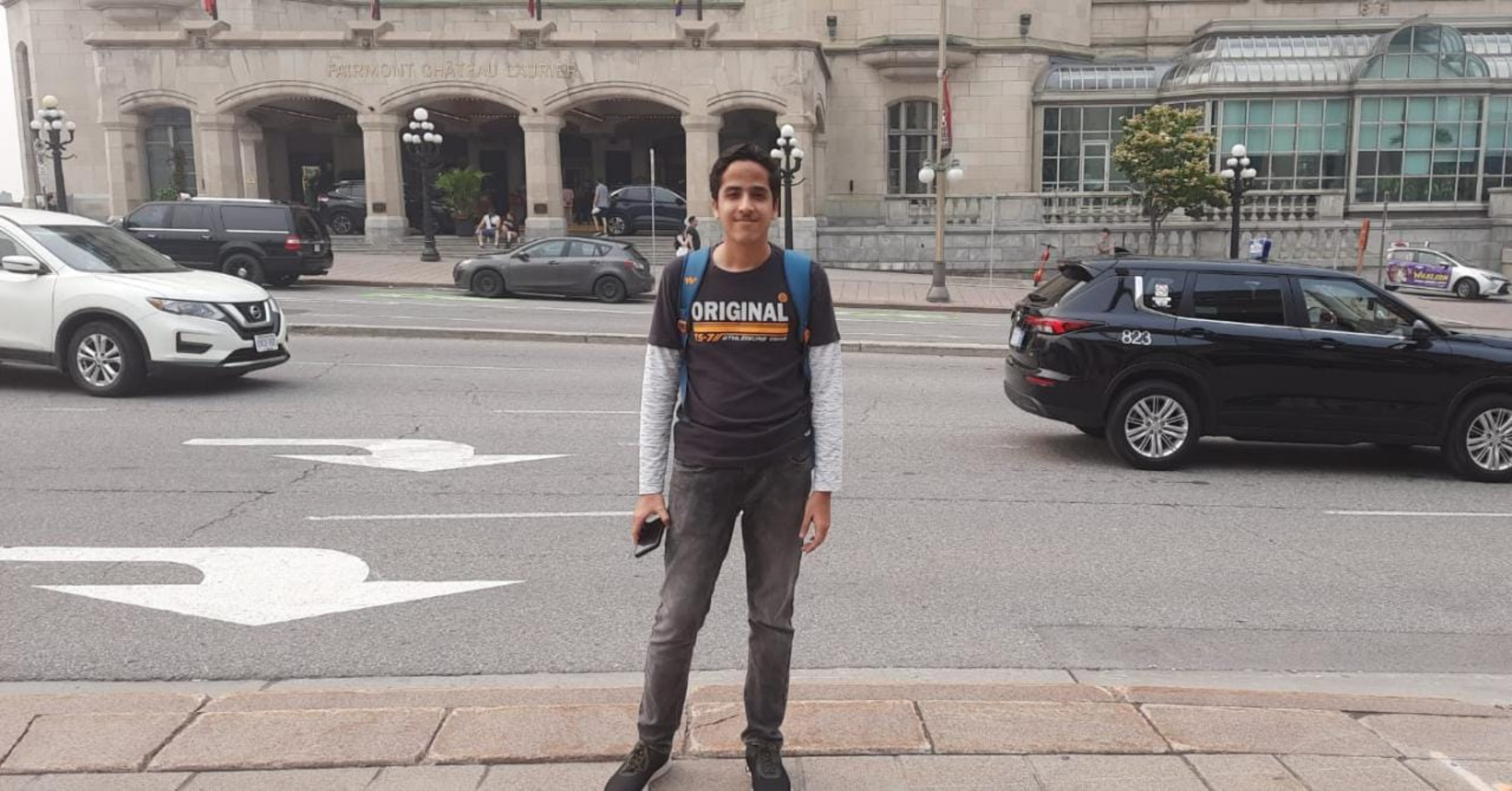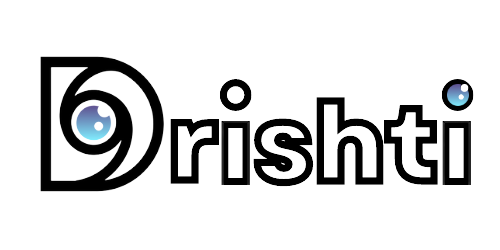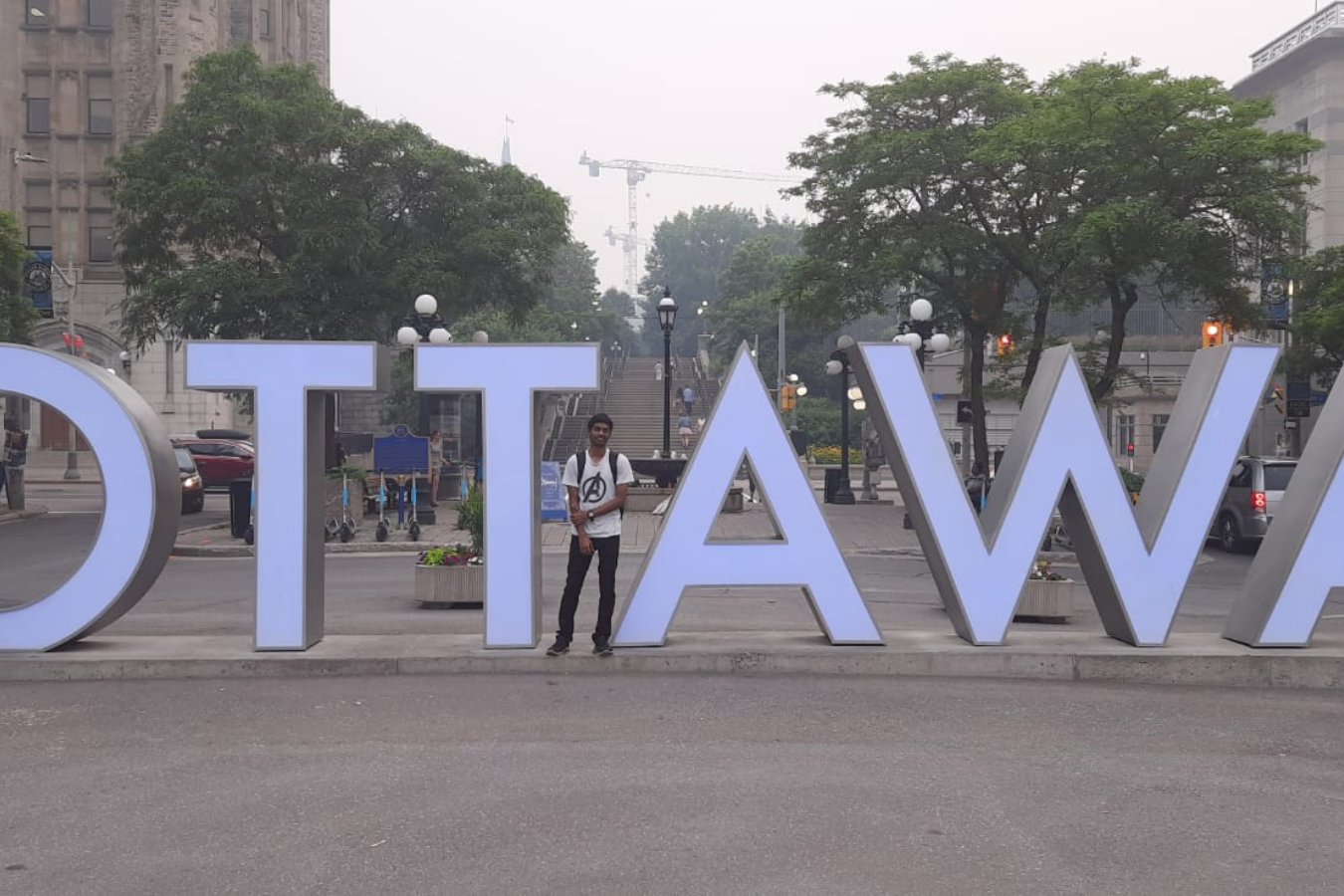
Raghav Magazine is a 4th year CSE undergrad. He shares his experience interning at Carleton University, Ottawa, Canada, this summer through MITACS GlobaLink, where he worked on a project titled "Learning City Map Models using Machine Learning".
Introduction
Hi, I am Raghav Magazine; like most modern-day technology enthusiasts, I too, have the ML bug. I had the opportunity to do a 12-week research internship at Carleton University, Ottawa, Canada, which was funded by MITACS. I would like to share my experience and guide future aspirants.
Background
MITACS Globalink Research Internship offers undergraduate students, who are in their penultimate year, an opportunity to pursue a research project under the supervision of a professor at a Canadian university. Apart from the exposure to international-level research, students get a chance to visit Canada, meet new people, explore various cultures, build connections, and the cherry on the cake, all these activities are funded by MITACS. Also, undergraduates who complete this internship are eligible for scholarships from MITACS if they pursue higher studies in Canadian universities.
Motivation
In short, relief from the grinding DSA interviews and online coding tests!! Just kidding, I am interested in research as it usually involves exploring the unexplored! From struggling to pose the right questions to finding innovative solutions, the journey is indeed a rollercoaster ride filled with busy days and sleepless nights. Also, the excitement to visit a foreign country and meet different people was a major source of motivation for me. Also, it helps to build a strong research profile which is beneficial for students planning to do higher studies.
Preparation Strategies
To stand a good chance at getting selected requires one to have a strong research profile. Having publications at reputed journals or conferences helps, though not a must, to get selected. For students in their first and second year, I would suggest taking up research projects on topics of your interest under professors and trying to get your work published. For third-year students, as you have very little time, try getting strong recommendation letters from your supervisors and try to tune your resume to highlight skills you have gained via prior internships, projects, etc. Also, having a good repo with your professors will help, as they would then be willing to write recommendation letters for you, which would add great value to your application. For MITACS recommendation letters are a must, so they could often make or break your application. For early starters, my advice would be to try finding your niche early and build your profile around it. This will show the professors to whom you apply that you are focused on a certain topic or sub-domain; for example, the AI dudes out there focus on a specialization like Computer Vision, NLP, or Robotics (excuse me, as I cannot speak for other engineering domains, being a CS undergrad) rather than wandering around everything and putting up a blurry profile. As MITACS professors have predefined projects and internship objectives, they often tend to choose students who have prior experience in that particular project rather than looking at the overall profile. This can be an advantage for late starters, who might not have much prior experience but only have a considerable amount of knowledge of the project they applied to.
Application Procedure
The application period is around August-September of the year before your interning year. Students need to submit their academic information, prior work experience, Letters of Recommendation, and other documents as per the requirements. Students can apply to only 7 projects from a list of over 500 projects, supervised by professors from various Canadian universities, so choose wisely. After the application deadline, MITACS verifies your documents, and the professors you applied to can call you for an interview to get to know you better. These interviews are usually light, where candidates are expected to talk about their prior experiences and how they can contribute to the project. Demonstration of practical skills (coding, assignments) is not expected, and you can usually just talk your way out. There are also instances of students getting selected without an interview! Every professor has his/her criteria for selection. Some might give more weightage to your grades, some to your previous experience or publications. After the interviews, you will be notified by MITACS of your selection over 3 months.
Hacks to get accepted
i) Apply to projects that require skills you already have via prior work experience ii) As you are allowed to apply for only 7 projects, don’t be too ambitious (or should I say silly!) and consume all 7 by applying to only top universities. (Eg. University of Toronto, University of British Columbia, McGill University). Though the thought of getting a project there sounds lucrative, as they receive numerous applications, the chances of acceptance of an average student are low. I would suggest the 2+3+2 formula i.e., apply to 2 ambitious, 3 mediocre, and 2 safe universities iii) Controversial Opinion: Prefer a project of more interest at a lower-ranked university over a project of lesser interest at a higher-ranked university, as during the interview, you will be more confident and will be able to speak extensively about things you understand and are interested in. iv) Universities offer projects in English, French, and some in both. (Yes! English and French are both official languages of Canada). Apart from the projects in English, targeting a few projects which are offered in the “Both category” can be a good idea as, generally, people tend to not apply there, and the competition can be less. This is, of course, a last resort in case you don’t find any relevant projects and still want to get through!
The Journey
Often the idea of going to a foreign country, living there by yourself, and also fulfilling the requirements of your project at the same time can be quite intimidating at first sight! However, you need not worry, as MITACS provides you with timely guidance and resources to cater to your needs. From applying for a Canadian Visa, and collecting immigration documents to finding accommodation, opening a bank account, and getting health insurance, you are regularly provided information to keep you updated with the regulations and rules in Canada. Even though getting in touch with your fellow interns via Facebook and WhatsApp groups solves most of the problems, MITACS does its part in making your stay comfortable. Also, the much-awaited stipends are given as per a predefined schedule to ensure a hassle-free trip. Also, you will get a chance to attend a couple of social events, which will be compensated by MITACS. Canada being a lively country, weekends are usually filled with various activities like concerts, festivals, light shows, etc., so it is totally up to an individual as to how much they want to explore and spend!
My Experience and Concluding Remarks
During my internship, I worked on a project titled “Learning City Map Models using Machine Learning”, which revolved around using deep learning concepts on graphs. I had weekly meetings with the professor, and there were bi-weekly lab meetings where I got to interact with other students and discuss topics of common interest. Apart from the research work, I visited various parks, concerts, night shows, and the Parliament Building (as I was in the capital). I got introduced to different people, cultures, and ways of life as Canada is a very diverse country. It is a great experience for undergraduate students as it is usually the first time you live by yourself in a foreign land, that too without or with very minimal financial assistance from your family! Overall, it was a memorable experience that taught me many life skills apart from helping me grow professionally. I would strongly recommend juniors apply for it and get a taste of the Canadian lifestyle!
The views presented above are the blogger’s own and are not in any manner representative of the views of Drishti or IIT Dharwad in general.




 Never miss a story from us, follow us on our handles!
Never miss a story from us, follow us on our handles!
Comments